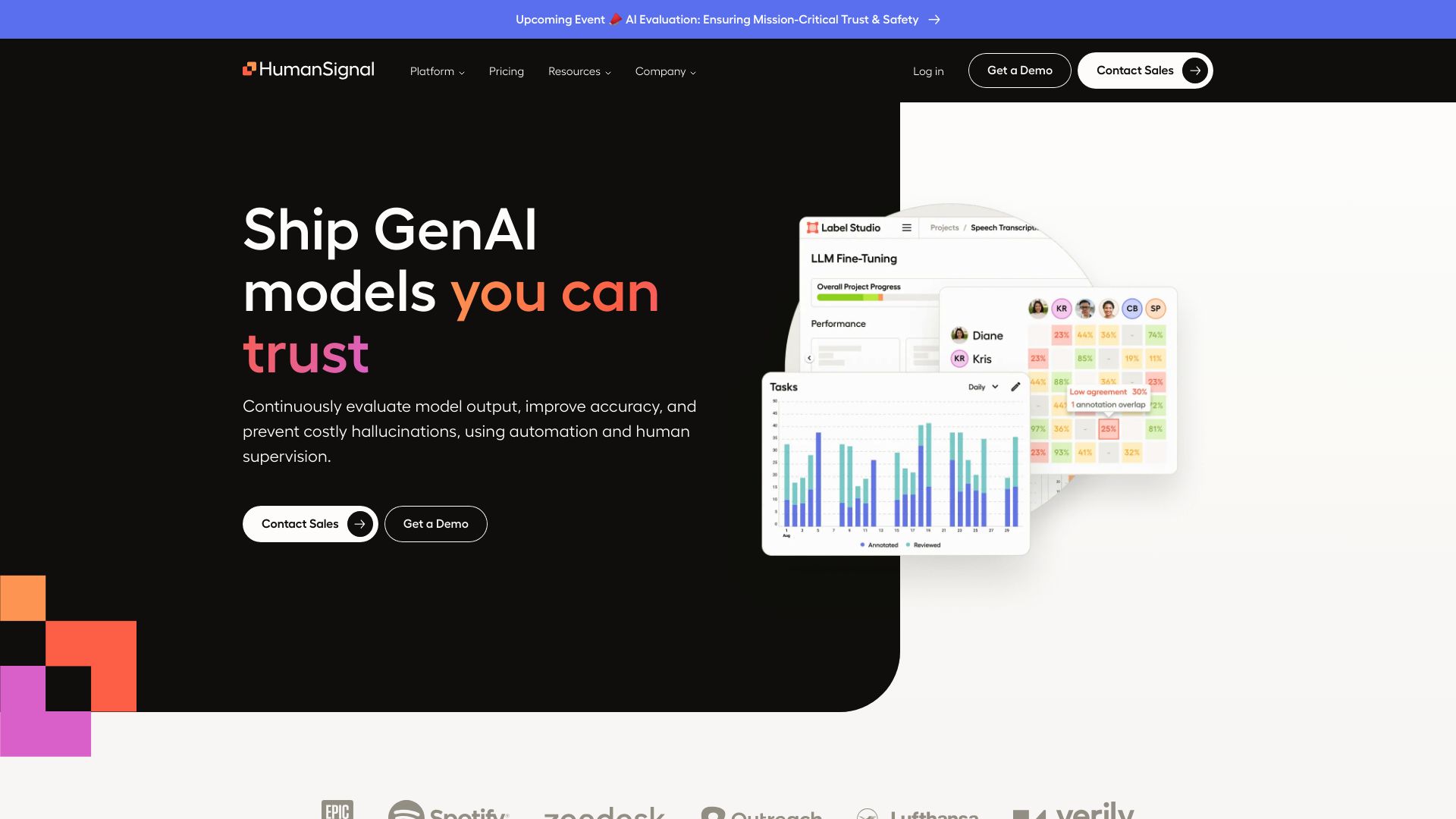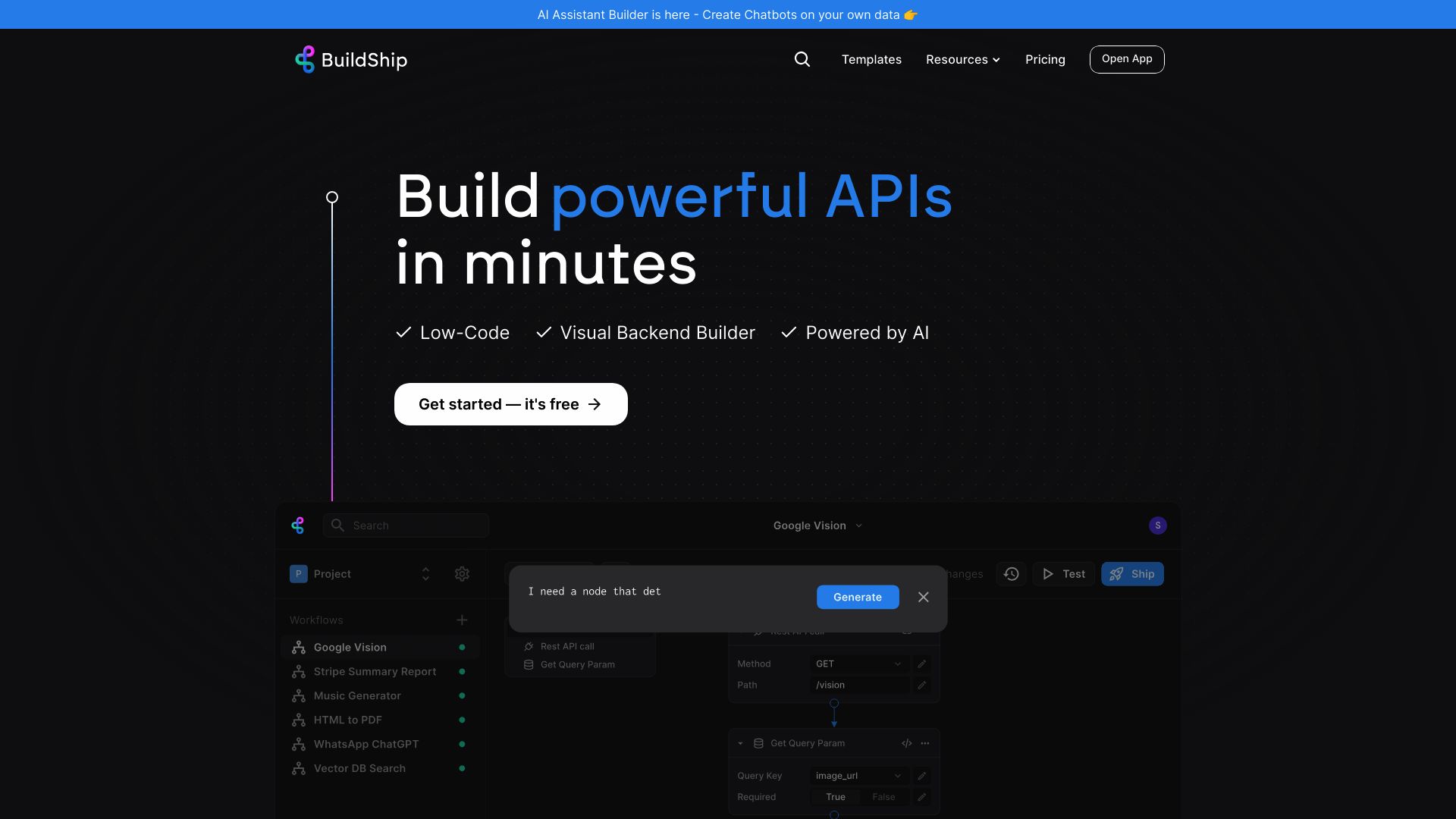Adala vs. BuildShip: AI Automation Titans Compared
AI-powered platforms transform how businesses handle data labeling and workflow automation. Adala vs. BuildShip offer distinct approaches to these challenges, each with unique strengths. Adala’s open-source framework builds autonomous data labeling agents, while BuildShip’s no-code interface streamlines backend workflow creation.
This comparison explores their key features, capabilities, and limitations, helping you determine which tool best suits your AI development needs. We’ll also introduce SmythOS, a comprehensive solution that combines the best of both worlds and pushes the boundaries of what’s possible in AI automation.
Adala Overview
Adala revolutionizes data labeling with its open-source framework for building autonomous AI agents. These agents leverage large language models like GPT-3 to acquire and refine specialized skills such as text classification, summarization, and question answering. Adala’s modular architecture encourages community contributions, fostering continuous evolution and improvement of the platform.


Adala’s strength lies in its ability to combine AI capabilities with human input, creating a feedback loop that ensures reliable and adaptable results. The platform allows users to guide agent training through labeled ground truth datasets, while agents can request human feedback to refine their skills further. This approach significantly increases efficiency and reduces costs associated with data labeling tasks, without compromising on quality.
Adala’s strength lies in its ability to combine AI capabilities with human input, creating a feedback loop that ensures reliable and adaptable results.
The framework supports both development and production environments, enabling seamless transitions from testing to deployment. Adala’s agents possess short-term and long-term memory capabilities, allowing them to learn from past interactions and improve their performance over time. The platform also emphasizes explainability and transparency, crucial factors in building trustworthy AI systems.
While Adala excels in many areas, it lacks some features found in more comprehensive AI development platforms. There’s no visual builder or no-code editor, which may limit accessibility for non-technical users. Additionally, the platform doesn’t explicitly mention support for multimodal inputs or advanced security features like data encryption. However, its focus on extensibility and integration with various APIs allows for potential expansion of capabilities through community-driven development.
Adala positions itself as a specialized tool for data labeling tasks rather than a general-purpose AI development platform. This focus allows it to excel in its niche, offering powerful capabilities for businesses and researchers looking to automate and improve their data labeling processes. As organizations increasingly rely on high-quality labeled data for machine learning projects, Adala’s innovative approach to combining AI automation with human oversight positions it as a valuable asset in the AI toolchain.
BuildShip Overview
BuildShip empowers users to create, test, and deploy backend workflows and APIs without extensive coding. The platform’s visual no-code interface allows developers and business users to build complex automations through drag-and-drop functionality and AI-powered tools.
BuildShip’s core strength lies in its ability to integrate various data sources, APIs, and AI models into cohesive workflows. Users can leverage prebuilt nodes for common tasks or generate custom nodes using natural language prompts, significantly accelerating development time. The platform also supports custom logic implementation in JavaScript or TypeScript for more advanced use cases.
BuildShip empowers users to create, test, and deploy backend workflows and APIs without extensive coding… through drag-and-drop functionality and AI-powered tools.


Testing capabilities stand out as a key feature, allowing users to validate individual nodes and entire workflows before deployment. This iterative approach ensures robust and reliable automations. Once finalized, workflows can be deployed as production-grade APIs, seamlessly integrating into existing applications or scheduled to run automatically.
BuildShip’s AI-powered features extend beyond node creation. The platform offers AI autofill for inputs using natural language prompts, further simplifying the development process. A template library provides ready-to-use workflows for common scenarios, accelerating project timelines. Security is also prioritized, with secure storage for API keys and secrets.
BuildShip’s AI-powered features extend beyond node creation. The platform offers AI autofill for inputs using natural language prompts, further simplifying the development process.
While BuildShip offers significant advantages in rapid development and deployment of backend workflows, it may have limitations for highly specialized or niche use cases that require extensive customization beyond its visual interface and prebuilt components. Additionally, users heavily reliant on specific programming languages or frameworks not directly supported by BuildShip might face integration challenges.
Feature Comparison
Adala vs. BuildShip approach AI development from different angles, with Adala focusing on autonomous data labeling agents and BuildShip emphasizing backend workflow automation. Adala excels in creating specialized AI agents for data processing tasks, leveraging large language models and human feedback loops. Its modular architecture allows for community-driven improvements and extensions. However, Adala lacks a visual builder or no-code editor, potentially limiting accessibility for non-technical users.
BuildShip, in contrast, provides a visual no-code interface for creating backend workflows and APIs. It integrates various data sources and AI models, offering drag-and-drop functionality and AI-powered tools for rapid development. BuildShip’s strength lies in its ability to quickly prototype and deploy complex automations without extensive coding. However, it may face limitations for highly specialized use cases that require extensive customization beyond its visual interface.
In terms of core components, Adala’s focus on data labeling gives it an edge in classification tasks and iterative learning processes. BuildShip offers broader integration capabilities, including connections to external APIs and AI models. For security, BuildShip emphasizes secure storage for API keys and secrets, while Adala’s documentation doesn’t explicitly mention advanced security features like data encryption or OAuth implementation.
| Adala | BuildShip | SmythOS | |
|---|---|---|---|
| CORE FEATURES | |||
| Hosted Agents (Dev, Production) | ❌ | ✅ | ✅ |
| Visual Builder | ❌ | ✅ | ✅ |
| No-Code Options | ❌ | ✅ | ✅ |
| Memory & Context | ✅ | ❌ | ✅ |
| Autonomous Agents | ✅ | ❌ | ✅ |
| Explainability & Transparency | ✅ | ❌ | ✅ |
| Debug Tools | ❌ | ✅ | ✅ |
| Multimodal | ❌ | ❌ | ✅ |
| Problem-Solving Capabilities | ✅ | ❌ | ✅ |
| Multi-Agent Collaboration | ❌ | ❌ | ✅ |
| Human-AI Interaction | ✅ | ❌ | ✅ |
| Audit Logs for Analytics | ❌ | ❌ | ✅ |
| Work as Team | ✅ | ❌ | ✅ |
| SECURITY | |||
| Constrained Alignment | ✅ | ❌ | ✅ |
| Data Encryption | ❌ | ✅ | ✅ |
| OAuth | ❌ | ✅ | ✅ |
| IP Control | ❌ | ✅ | ✅ |
| COMPONENTS | |||
| Foundation AIs | ✅ | ❌ | ✅ |
| Huggingface AIs | ❌ | ❌ | ✅ |
| Zapier APIs | ❌ | ❌ | ✅ |
| All other APIs, RPA | ❌ | ✅ | ✅ |
| Classifiers | ✅ | ❌ | ✅ |
| Data Lakes | ❌ | ❌ | ✅ |
| DEPLOYMENT OPTIONS (EMBODIMENTS) | |||
| Deploy as Webhook | ❌ | ✅ | ✅ |
| Staging Domains | ❌ | ❌ | ✅ |
| Production Domains | ❌ | ❌ | ✅ |
| API Authentication (OAuth + Key) | ❌ | ✅ | ✅ |
| Deploy as Site Chat | ❌ | ❌ | ✅ |
| Deploy as Scheduled Agent | ❌ | ✅ | ✅ |
| Deploy as GPT | ✅ | ❌ | ✅ |
| DATA LAKE SUPPORT | |||
| Hosted Vector Database | ✅ | ❌ | ✅ |
| Sitemap Crawler | ❌ | ❌ | ✅ |
| YouTube Transcript Crawler | ❌ | ✅ | |
| URL Crawler | ❌ | ❌ | ✅ |
| PDF Support | ❌ | ❌ | ✅ |
| Word File Support | ❌ | ❌ | ✅ |
| TXT File Support | ❌ | ❌ | ✅ |
Best Alternative to Adala and BuildShip
SmythOS stands out as the superior alternative to Adala and BuildShip, offering a comprehensive platform for AI agent development and deployment. Our solution combines powerful features with user-friendly design, making it ideal for a wide range of users from beginners to experienced developers.
Unlike Adala’s narrow focus on data labeling and BuildShip’s backend workflow automation, SmythOS provides a versatile environment for creating and managing AI agents across diverse applications. We offer a visual drag-and-drop interface that simplifies agent creation without sacrificing advanced capabilities. This approach democratizes AI development, allowing users to build sophisticated agents without extensive coding knowledge.
SmythOS provides a versatile environment for creating and managing AI agents across diverse applications… allowing users to build sophisticated agents without extensive coding knowledge.
SmythOS excels in its extensive integration ecosystem, supporting a wide array of AI models, APIs, and data sources. This flexibility ensures that our platform can adapt to virtually any workflow or business process. Our multi-agent orchestration capabilities enable teams of AI agents to collaborate on complex tasks, significantly enhancing efficiency and scalability.
In contrast to Adala and BuildShip, SmythOS provides a full suite of deployment options, including APIs, webhooks, chatbots, and even integration with platforms like ChatGPT. This versatility, combined with our robust security features and scalable architecture, makes SmythOS the ideal choice for businesses looking to leverage AI across their operations. Whether you’re automating customer service, enhancing data analysis, or developing innovative AI applications, SmythOS offers the tools and flexibility to bring your vision to life efficiently and effectively.
Conclusion
Adala and BuildShip offer distinct approaches to AI-driven automation. Adala excels in data labeling with its open-source framework for autonomous agents, while BuildShip focuses on backend workflow automation through a visual no-code interface. Each platform addresses specific needs in the AI development landscape.
SmythOS emerges as the superior choice, combining the strengths of both platforms while offering additional powerful features. Our drag-and-drop interface rivals BuildShip’s ease of use, while our support for autonomous agents matches Adala’s capabilities. SmythOS goes further by providing extensive integration options, multi-agent collaboration, and versatile deployment choices across various platforms and environments.
For businesses and developers seeking a comprehensive AI development solution, SmythOS delivers unparalleled value. Our platform supports a wide range of AI models, offers robust security features, and enables seamless scaling from prototype to production. Whether you’re building complex workflows, deploying chatbots, or creating custom APIs, SmythOS provides the tools and flexibility to bring your AI projects to life.
Ready to experience the power of SmythOS? Create a free account today and start building your AI-powered solutions. Explore our extensive library of integrations and pre-built agent templates to jumpstart your projects. Join the AI revolution and transform your workflow with SmythOS.
Last updated:
Disclaimer: The information presented in this article is for general informational purposes only and is provided as is. While we strive to keep the content up-to-date and accurate, we make no representations or warranties of any kind, express or implied, about the completeness, accuracy, reliability, suitability, or availability of the information contained in this article.
Any reliance you place on such information is strictly at your own risk. We reserve the right to make additions, deletions, or modifications to the contents of this article at any time without prior notice.
In no event will we be liable for any loss or damage including without limitation, indirect or consequential loss or damage, or any loss or damage whatsoever arising from loss of data, profits, or any other loss not specified herein arising out of, or in connection with, the use of this article.
Despite our best efforts, this article may contain oversights, errors, or omissions. If you notice any inaccuracies or have concerns about the content, please report them through our content feedback form. Your input helps us maintain the quality and reliability of our information.
